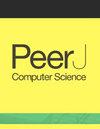Bio-Rollup:基于双层可扩展性区块链的新型生物识别隐私保护解决方案
IF 3.5
4区 计算机科学
Q2 COMPUTER SCIENCE, ARTIFICIAL INTELLIGENCE
引用次数: 0
摘要
人工智能生成的内容(AIGC)在广大用户群中的使用日益增多,加剧了私人数据泄露的风险。有效的审计和监管仍然具有挑战性,进一步加剧了与模型参数和用户数据泄露相关的风险。区块链技术以其去中心化的共识机制和防篡改特性而闻名,正在成为记录、审计和分析机器学习即服务(MLaaS)中所有利益相关者行为的理想工具。本研究以生物识别系统为中心,通过创新努力解决紧迫的隐私和安全问题。我们利用基于查询输出空间的数据集质量指标,对六个不同的深度神经网络进行了实验分析,以量化转移数据集的价值。这项分析揭示了不平衡数据集对训练准确性的影响,从而增强了系统检测模型数据盗窃的能力。此外,我们还设计并实施了一种新颖的生物卷积方案,无缝集成了证书授权、区块链第二层扩展和零知识证明等技术。这一创新方案通过默克尔证明实现了轻量级审计,在提高效率的同时最大限度地降低了区块链存储要求。与基线方法相比,Bio-Rollup 恢复了生物识别系统的完整性,简化了部署程序。它通过证书授权和零知识证明有效防止了未经授权的使用,从而保护了用户隐私,并提供了对模型窃取攻击的被动防御。本文章由计算机程序翻译,如有差异,请以英文原文为准。
Bio-Rollup: a new privacy protection solution for biometrics based on two-layer scalability-focused blockchain
The increased use of artificial intelligence generated content (AIGC) among vast user populations has heightened the risk of private data leaks. Effective auditing and regulation remain challenging, further compounding the risks associated with the leaks involving model parameters and user data. Blockchain technology, renowned for its decentralized consensus mechanism and tamper-resistant properties, is emerging as an ideal tool for documenting, auditing, and analyzing the behaviors of all stakeholders in machine learning as a service (MLaaS). This study centers on biometric recognition systems, addressing pressing privacy and security concerns through innovative endeavors. We conducted experiments to analyze six distinct deep neural networks, leveraging a dataset quality metric grounded in the query output space to quantify the value of the transfer datasets. This analysis revealed the impact of imbalanced datasets on training accuracy, thereby bolstering the system’s capacity to detect model data thefts. Furthermore, we designed and implemented a novel Bio-Rollup scheme, seamlessly integrating technologies such as certificate authority, blockchain layer two scaling, and zero-knowledge proofs. This innovative scheme facilitates lightweight auditing through Merkle proofs, enhancing efficiency while minimizing blockchain storage requirements. Compared to the baseline approach, Bio-Rollup restores the integrity of the biometric system and simplifies deployment procedures. It effectively prevents unauthorized use through certificate authorization and zero-knowledge proofs, thus safeguarding user privacy and offering a passive defense against model stealing attacks.
求助全文
通过发布文献求助,成功后即可免费获取论文全文。
去求助
来源期刊

PeerJ Computer Science
Computer Science-General Computer Science
CiteScore
6.10
自引率
5.30%
发文量
332
审稿时长
10 weeks
期刊介绍:
PeerJ Computer Science is the new open access journal covering all subject areas in computer science, with the backing of a prestigious advisory board and more than 300 academic editors.
 求助内容:
求助内容: 应助结果提醒方式:
应助结果提醒方式:


